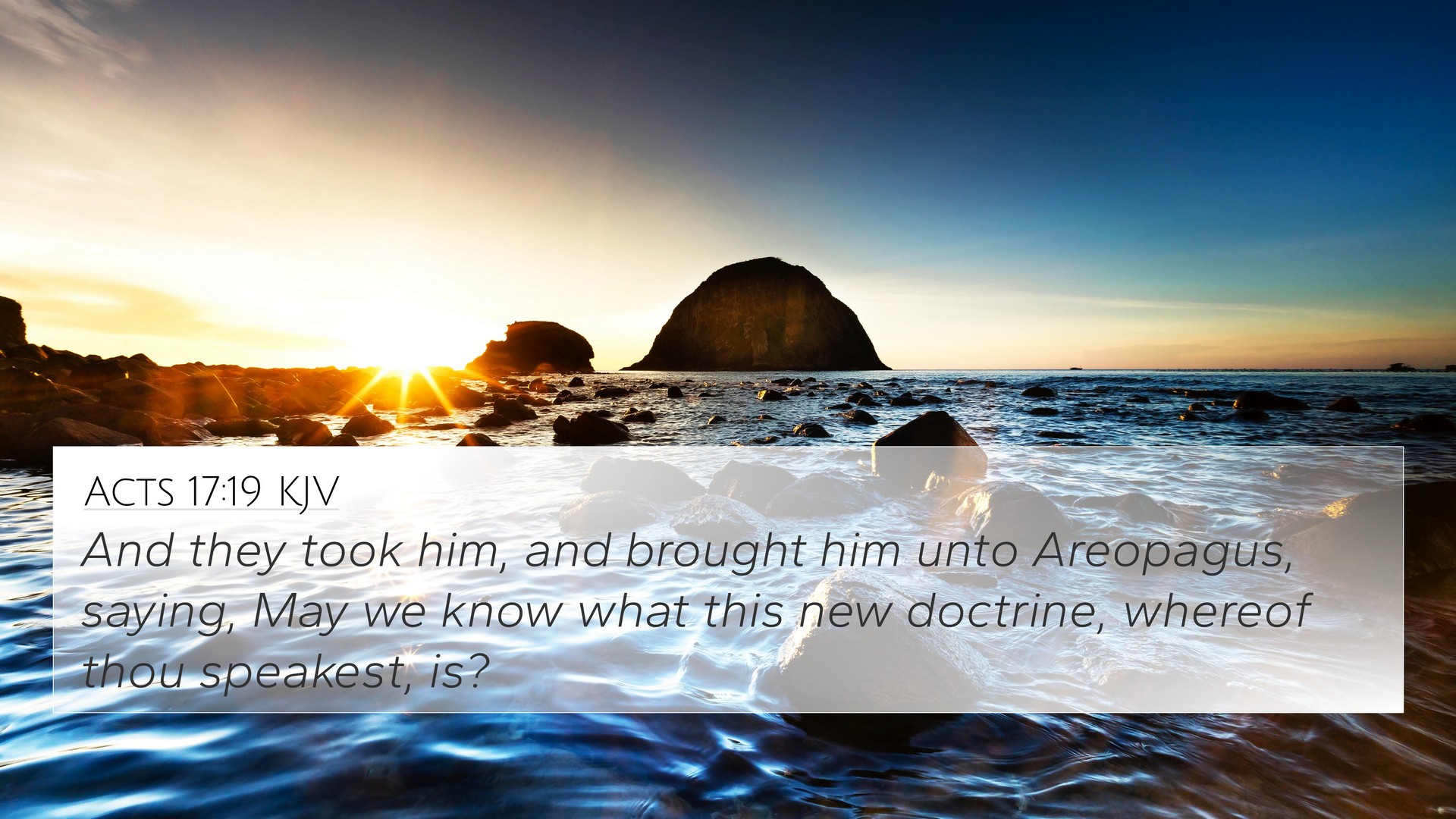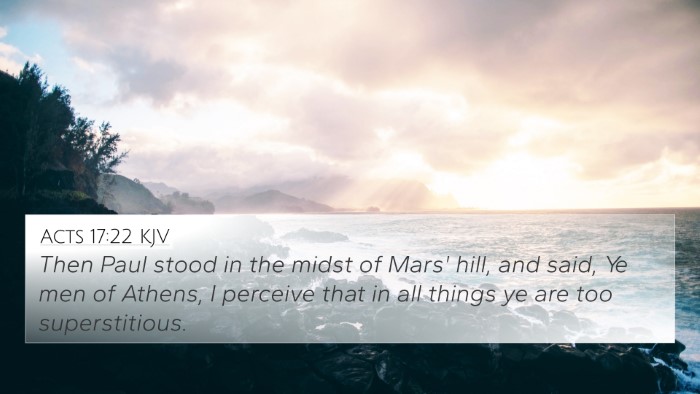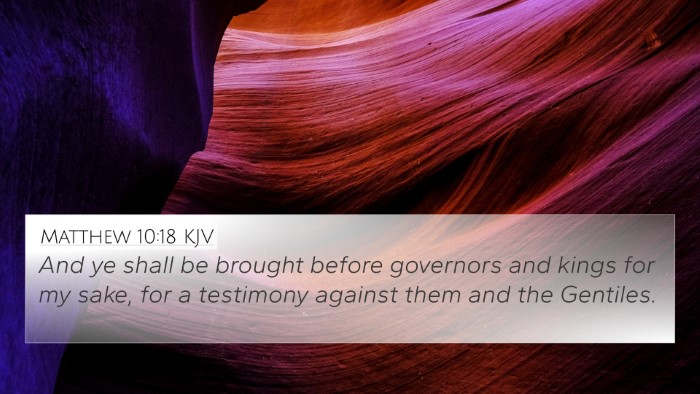Understanding Acts 17:19
Acts 17:19 recounts the Apostle Paul's encounter with the philosophers in Athens, where he was accused of promoting foreign gods. This moment is pivotal as it represents the clash of cultures and ideologies, highlighting Paul's role as a messenger of Christianity in a polytheistic society.
Commentary Insights
In addressing the meaning of Acts 17:19, several public domain commentaries provide valuable insights that help unpack its significance:
-
Matthew Henry:
Henry emphasizes that Paul's teaching was met with curiosity and incredulity. The Athenians were known for their philosophical debates, and they took an interest in new ideas. This event showcases the importance of engaging in dialogues about faith in diverse settings.
-
Albert Barnes:
Barnes notes that this verse illustrates the early challenges faced by Christian evangelists. The phrase ‘new things’ reflects how the gospel was perceived as distinct from traditional beliefs. It serves as a reminder that presenting the gospel often requires navigating cultural perceptions and preconceived notions.
-
Adam Clarke:
Clarke highlights the significant philosophical context in which Paul preached. He connects this encounter to the larger theme of God's revelation through different cultures and philosophies, stressing that all truth ultimately points to God. Paul’s approach exemplified the need to communicate truth in a way that resonates with the audience.
Thematic Connections and Cross-References
The verse invokes various themes and encourages an exploration of inter-Biblical connections. Below are some notable cross-references that relate to Acts 17:19:
- 1 Corinthians 1:22-24: Highlights the demand for signs and the wisdom of preaching Christ crucified.
- John 14:6: Jesus as the way, the truth, and the life, emphasizing the unique truth found in Christianity.
- Romans 1:16: The gospel is the power of God for salvation to everyone who believes, not just to the Jew, but also to the Greek.
- Colossians 2:8: Warns about being taken captive by philosophy and empty deceit, echoing the need to be cautious of worldly wisdom.
- Acts 17:22-31: Further details Paul’s address to the Athenians, providing deeper context to the encounter.
- Acts 26:24: Festus describes Paul’s preaching as madness, reflecting similar cultural misunderstandings.
- Philippians 2:15-16: Calls believers to be lights in the world amidst a crooked generation, akin to Paul’s mission in Athens.
- Matthew 5:14-16: Jesus teaches that His followers are to shine their light before others, which correlates with Paul’s efforts to witness in a darkened culture.
- Galatians 1:8-10: Emphasizes the importance of preaching the true gospel, relevant in a context where new teachings arise.
- Acts 1:8: Commands the disciples to be witnesses in Jerusalem, Judea, Samaria, and to the ends of the earth, exemplifying the broader scope of Christian mission.
Conclusion
Acts 17:19 serves as a vital reflection on the early church's interaction with diverse philosophical ideas and cultures. The insights gathered from public domain commentaries help illuminate the significance of Paul's mission in Athens and invite readers to explore the rich thematic connections between various Bible verses.
Through cross-referencing related scriptures, one can gain a deeper appreciation for the complexities of faith in a multicultural world and the ongoing relevance of the Christian message today.
Further Exploration
To delve further into the insights gained from Acts 17:19, consider using tools for Bible cross-referencing and study. Resources like a Bible concordance or a cross-reference Bible study guide can provide comprehensive pathways to understanding the intricate web of connections across the scriptures. By examining similar themes and dialogues present in the Bible, believers can identify how early teachings resonate with contemporary faith challenges.











